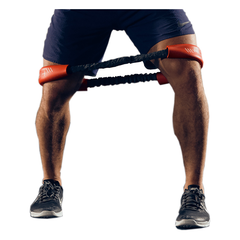Back in my day, breakfast was the most important meal of the day. But nowadays, holding back on food until after noon is touted as the way to healthy living.
Which is not unfounded.
There is evidence to show that the popular trend known as intermittent fasting, which consolidates eating into a defined window (like between 12-6 pm), may be beneficial to health.
Research shows that it helps in weight loss for some (ref) and may decrease the risk of developing other diseases, such as heart disease and diabetes (ref).
But what about a cure for your joint pain?
Purely from the weight loss perspective, if intermittent fasting helps you lose some extra pounds, it will benefit joint health.
A 2005 study in Arthritis and Rheumatism showed that one pound of weight loss decreased the load on the knees of each step by 4 lbs. So drop another ten pounds, and extrapolate that by thousands of steps, and you’re taking a ton of stress off your achy knees.
However, is there something deeper?
In a recent interview, Rich Froning, the 4x fittest man on earth, said he follows intermittent fasting to help with his knee pain. Assuming that weight loss wasn’t a factor in this, it raises the question of other mechanisms that may occur with short-term fasting that can decrease joint pain.
It May Help Regulate Blood Sugar
As we have talked about before, pain is a perception of the brain. Just as we process things like smell, sight, or taste, the brain processes input that into varying levels of pain.
The immune system relays some sensory input to the brain through chemicals called cytokines. Cytokines are essentially systemic messengers that tell other cells in the body where to go and what to do.
The brain becomes more alert when it picks up on these stimuli, like a security guard that has been alerted to some mysterious behavior. It then approaches things cautiously by heightening the “pain perception” (ref).
There is no shortage of lists from health and fitness gurus touting inflammatory and anti-inflammatory foods. Navigating this would lead to a long article along with some questionable science. But we can conclude that certain people don’t tolerate certain foods very well, which leads to inflammation.
But studies also show that food itself can be inflammatory when they increase blood glucose (ref), which happens predominantly by consuming high-carb foods.
Eating in a small window consolidates calories into a couple of larger meals. So rather than a day-long stream of elevated blood glucose that happens with snacking and regular meals, there are just a couple of big bumps throughout the day. Additionally, it helps to better regulate insulin, a hormone responsible for processing glucose, and has anti-inflammatory properties (ref).
Therefore, fasting may help suppress inflammation by improving the regulation of blood sugar.
This is relevant to us mere mortals, but in the same interview, he also referenced his 6-hour training days. If you think that’s a lot, since moving to the team competition, 6 hours is on the lighter side.
The point is an athlete training full-time is likely clearing blood glucose remarkably well. It’s not like the elevated blood sugar we would have after putting back a few donuts on the way to work. So maybe something else is at work to help him deal with the pain?
Increases Ketosis
The Keto Diet is another health craze that may have some pain-fighting power as well.
Ketosis is a state in which the body runs primarily off of fat metabolism when carbohydrate stores are limited.
While true ketosis would require extended time in fasting (24 to 48 hours), or weeks on an extremely low-carb diet, short periods of fasting (12 to 16 hours) show elevated levels of ketones. Which is even more for someone who has become accustomed to it.
Ketone metabolism is proven to have anti-inflammatory effects by reducing the production of reactive oxygen species and inhibiting the cellular production of inflammatory mediators (ref).
Thus, short-term fasting may have further benefits for reducing systemic levels of inflammation through ketone metabolism.
Can Intermittent Fasting Cure Pain
So to answer the question posed in the title…
Things like this are the cornerstone of most clickbait. Take a nuance of a very successful person’s program, and tout it as the secret to fill in the blank problem while ignoring many other major factors.
Currently, there isn’t direct data to show intermittent fasting is the cure for joint pain. Yet there is a possibility that it can help, especially if you are overweight or pre-diabetic. Intermittent fasting shows promising results in helping to reduce weight and improve glucose regulation. Yet in these regards, it may be no more successful than simply cutting calories the good ol’ fashion way of dieting (ref).
Furthermore, it may be worth a try if you’ve been dealing with chronic pain issues, like arthritis. There is evidence that it can potentially help reduce systemic inflammation and other pain messengers. Although, skipping breakfast will have little success if that’s the only effort. If your body is up against overuse or not paired with a progressive exercise plan, don’t expect a magic cure.
The big take-home is to first work on fixing the underlying problems of your pain. Then experiment with other evidence-based adjuncts to help support your efforts. Intermittent fasting is cheap, easy to implement, and get’s great reviews. Despite concrete evidence, it seems to be worth a shot.
Here is a 2019 article from the New England Journal of Medicine if you want more in-depth information on intermittent fasting.
 Shoulder Packages
Shoulder Packages
 Hip & Core Package
Hip & Core Package
 Bundles
Bundles
 Accessories
Accessories


















